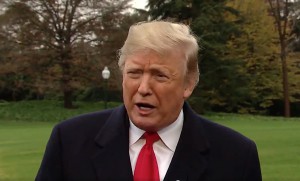
U.S. Trade Representative Robert Lighthizer appears to be making progress in talks with the Chinese.
After the first few days of talks, White House officials once again believe China is ready to cut tariffs on U.S. cars, trucks and utility vehicles from 40% to 15%.
Trump administration officials told automakers following a U.S.-China trade call they believe China will cut tariffs on U.S. autos to 15% from the current 40%, an auto executive told Reuters after being briefed on the call.
Before excitement begins to bubble, this has been heard before. President Donald Trump tweeted a few weeks ago that China was cutting the levies, only to have to backtrack on those assertions. Additinally, there is no actual documentation to support the idea.
However, the Wall Street Journal reported Tuesday that Chinese Vice Premier Liu He told U.S. Trade Representative Robert Lighthizer and Treasury Secretary Mnuchin that China would cut autos tariffs to 15%.
(Trump claims China will cut auto tariffs. Click Here for the story.)
China hiked its tariffs on American autos and parts to 40% earlier this year after the U.S. raised its tariffs on Chinese vehicles and parts to 27.5%. The two sides have been trading threats on additional tariffs for several months now. In a tweet, Trump led off by declaring himself “a Tariff Man.” He went on to decare that the U.S. is “now taking in $billions in Tariffs. MAKE AMERICAN RICH AGAIN.”

President Donald Trump had to walk back his initial claims that the Chinese were cutting tariffs on U.S. autos.
Of course, there are some potential flaws with that statement. For one thing, tariffs are simply another word for taxes on imports – and by increasing tariffs on Chinese-made cars and car parts from just 2.5% to 27.5%, Trump has priced some products out of the market while, in other instances, has added hundreds of dollars to the price Americans pay for vehicles.
At the same time, China has raised tariffs on American-made vehicles from 25% to 40%, an ironic development considering the Chinese cut tariffs on auto imports from other trade partners to just 15% this year.
(Click Here to see the Trump administration walk back its tariff claims.)
And that is hurting American auto manufacturers and American auto workers.
Last year, about 250,000 American-made cars, trucks and crossovers were shipped to China, a figure that has actually been on the increase. Volvo, in particular, had been planning to ship new S60 sedans to China from its new plant outside Charleston, South Carolina. But that strategy is now up in the air.
Automakers and parts suppliers are clearly hoping that the White House actually can come to some sort of settlement with the Chinese.
(To see more about Volvo potentially adjusting its manufacturing plans in South Carolina, Click Here.)
But the longer things remain in limbo the more the auto industry will have to come up with alternatives that could mean shifting business and jobs out of the U.S., precisely the opposite of what Trump said was the reason for an “easy to win” trade war in the first place.
